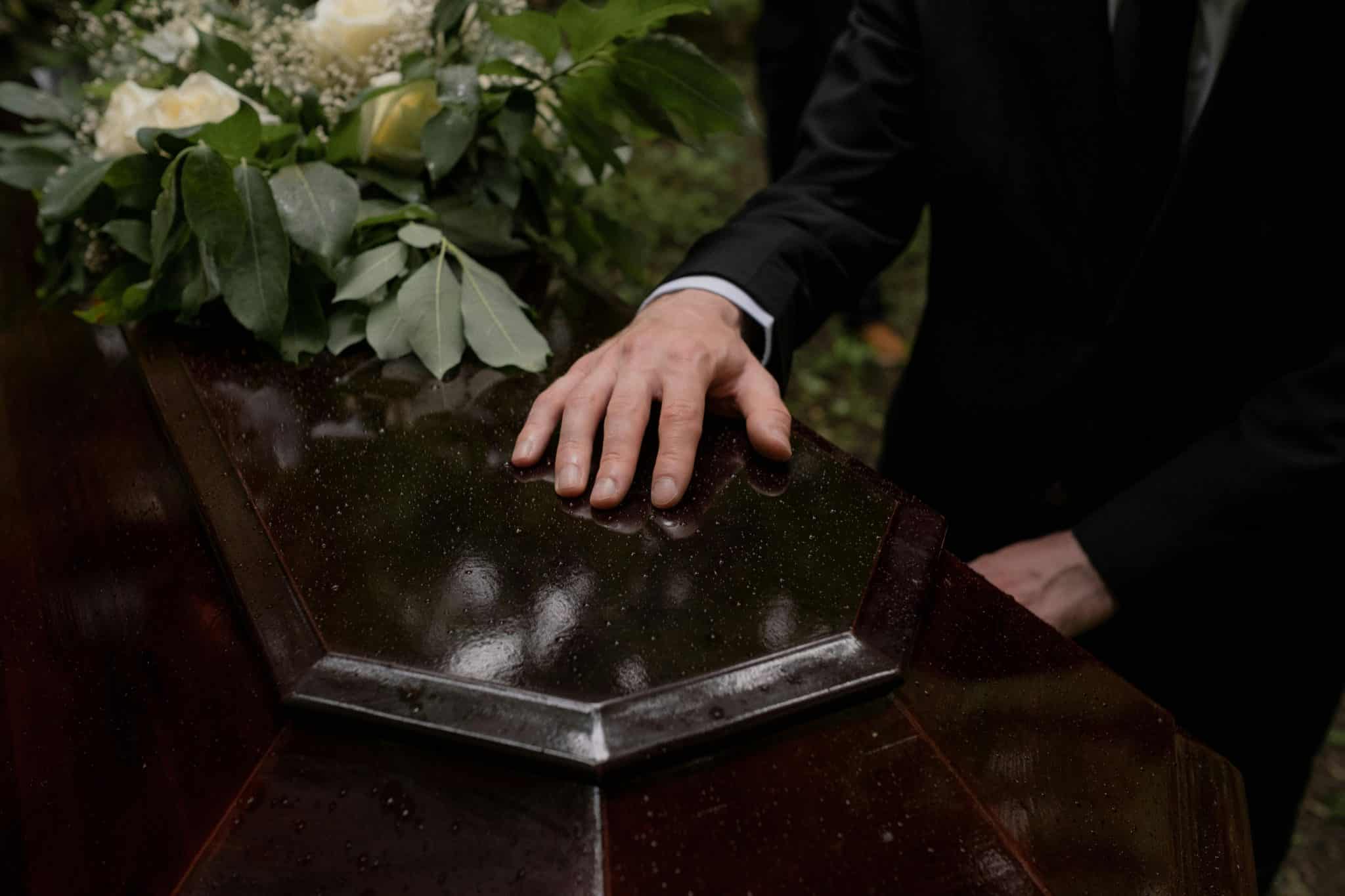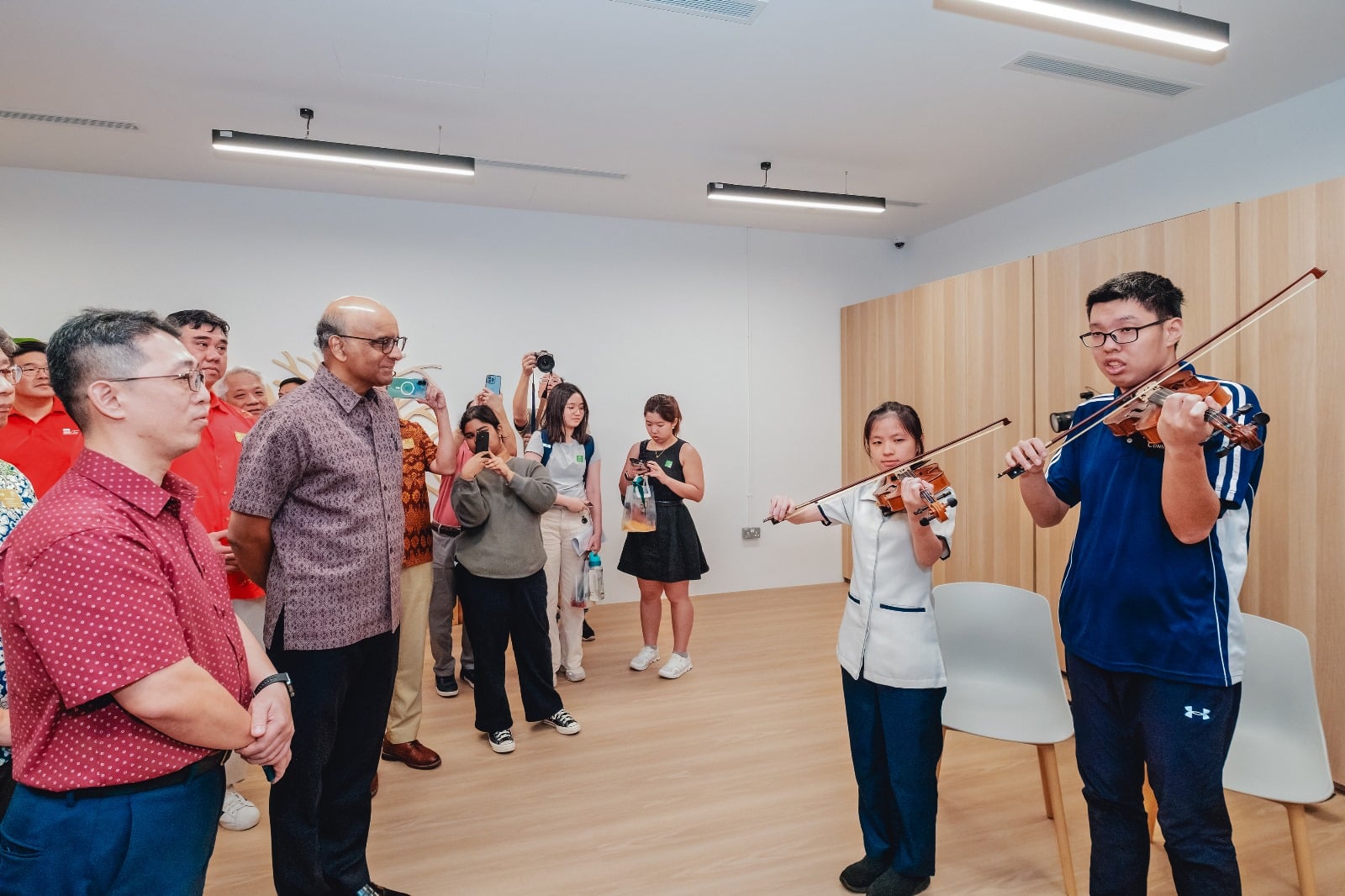Well acquainted with grief, these women now provide a safe space for widows and the fatherless
by Tan Huey Ying // August 28, 2020, 12:29 am
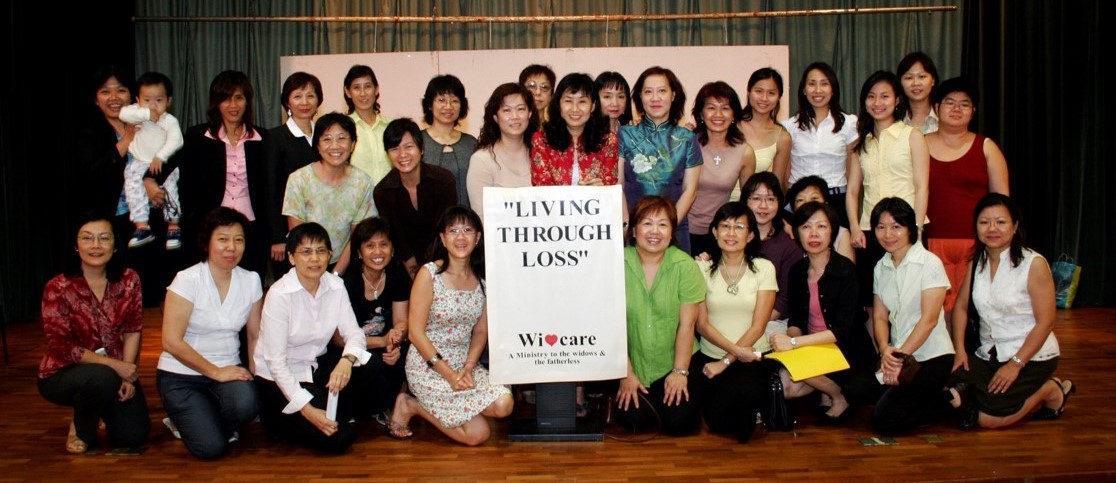
Every year, about 80 widows seek help from Wicare which is mainly run by volunteers and a lean staff of six. Wicare has over 900 widows and widowers in their membership base. Shown here is their first public forum, "Living Through Loss". Photo courtesy of Wicare Support Group.
At the end of the first meeting, one newly-bereaved widow told the woman next to her: “Tonight when I go home, I will still cry and miss my husband. But I will remember you and know that you are crying together with me.’’
The two women had sat side-by-side at the meeting crying for the full hour.
“I don’t think they heard much of what I was teaching,” said grief counsellor Lena Soh, who was running the WiShine workshop, Singapore’s first structured grief support programme for widows.
“But sometimes, more than anything else, it is the love and presence of a fellow traveller that is balm to our broken souls.”
Grief, in any form, is an isolating experience. But losing a spouse, especially prematurely, means the loss of a special bond that often amplifies the pain in ways that few others can relate to.
Dimensions of grief
Soh, 42, serves widows and their children through her work as a grief counsellor and general manager at Wicare Support Group, a local charity.
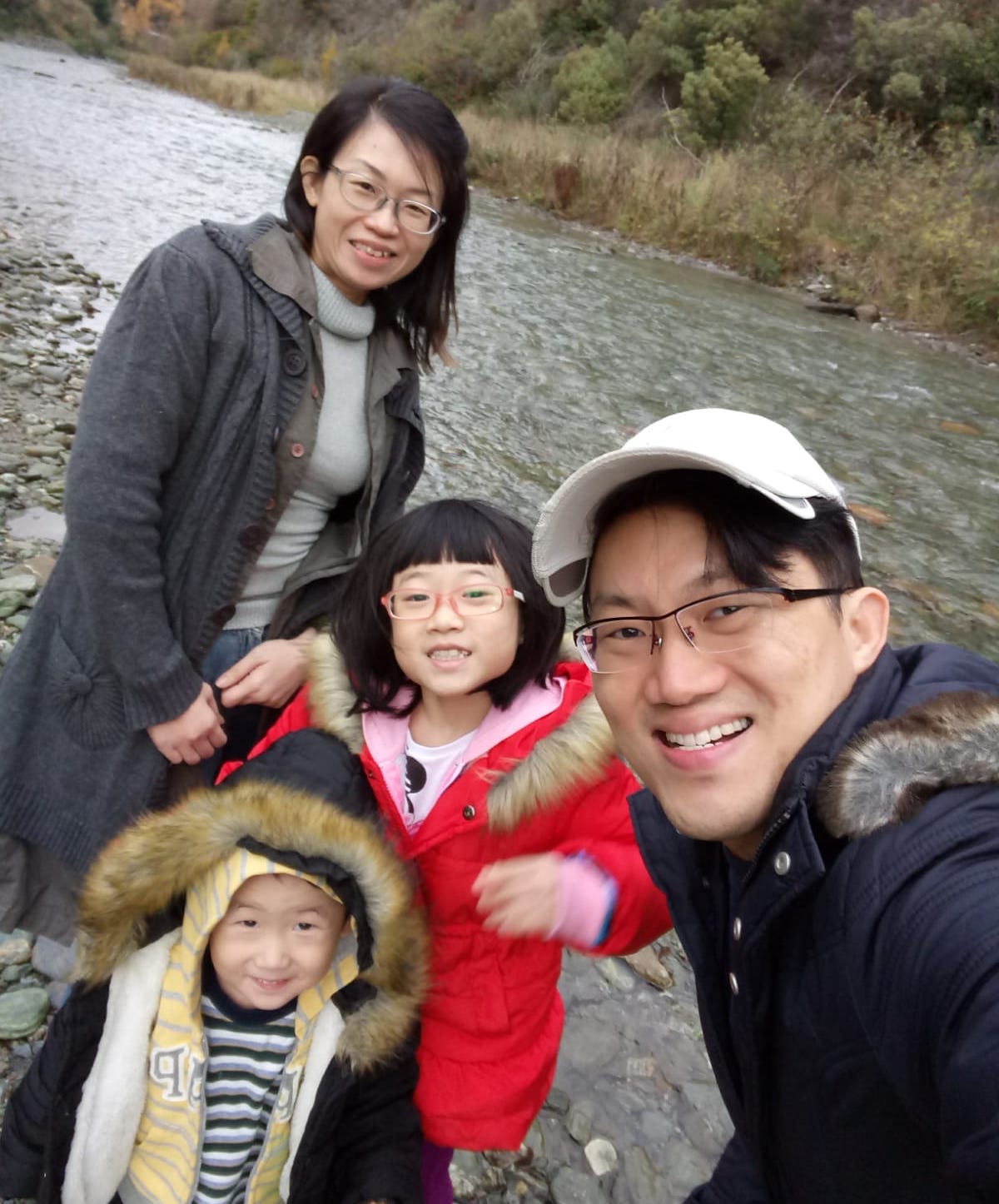
Lena Soh (background) with her family on holiday. Her six-year-old son, Immanuel (left foreground) was born not long after her mother passed away. His birth made her think of the moments and opportunities that her mother would miss with her grandson. Photo courtesy of Lena Soh.
The MOE-based educator started as a grief counsellor in August 2018, a move triggered in part by the sudden passing of her pastor, the late Reverend Rick Seaward, when his car crashed in March that year.
Grief, in any form, is an isolating experience. But losing a spouse, especially prematurely, means the loss of a special bond.
Unlike those whom she counsels and serves, Soh is not a widow. She is, however, well-acquainted with their grief and the bitter taste of loss.
Soh grew up the child of a widow after her father passed away when she was 10.
Three years later, her grandmother, to whom she was extremely close, also died.
Then, in her early 30s, her mother was diagnosed with terminal lung cancer. She passed away in 2013 just before Soh’s second child was born.
“Losing Grandma was most painful for me because of the bonds we shared. But in losing Mom, I also missed my dad and grandma all over again,” Soh said.
“In losing Mom, I also missed my dad and grandma all over again.”
The emotional season eventually led to Soh taking up a diploma in psychology and a Masters in Counselling.
In 2018, sometime after the news of Rev Rick Seaward’s passing, Soh planning her work schedule when she heard God ask her: “Your calendar is full of work and ‘human’ events. Where is My agenda?”
Her career was going well, but Soh felt the conviction to leave and take up a role that dealt with death and included therapeutic work.
She came across a posting for a counsellor at Wicare on a job portal, applied successfully and started working on developing the newly-launched WiShine programme.
From pain to hope
WiShine, started in September 2017 was Wicare’s first collaboration with the National Council of Social Services (NCSS). It is a nine-hour programme consisting of support group meetings and individual counselling provided free-of-charge by trained counsellors.
“Just put a widow next to another and there is healing.”
Formally established in 1998 by Joyce Lye and several other Christian widows who formed the first management committee, Wicare has been offering support to widows for more than 22 years.
It started organically when Lye, a widow herself, kept being introduced to other widows who were struggling to cope. Often, she would put off getting in touch because “it was so painful”. But she never turned anyone down.
Lye, 68, lost her husband in 1985 after their car skidded on the wet road, hit the curb, and overturned on Holland Road. Her husband was killed on impact, leaving her with two young daughters and no means of financial support. He was only 34.
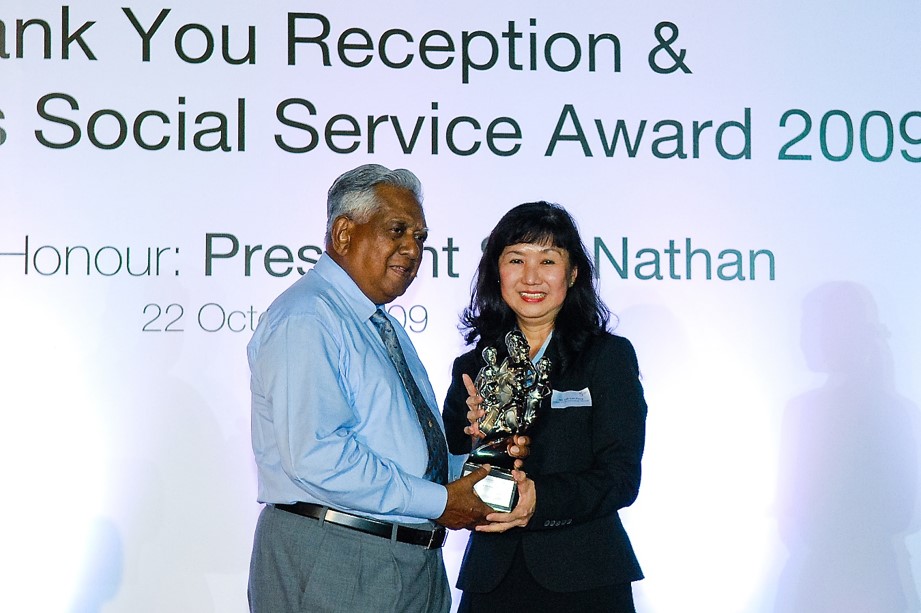
For a season, Lye was bitter as she struggled to work and raise her children alone. But her turning point came one night after she read the Bible a friend had given her. She landed upon the passage in 1 Timothy 5 which talks about widows in need of God.
“I was so shocked – it was like the verse was talking to me,” Lye recalled.
That night, Lye became a Christian.
Healing together
Lye realised that there was a huge need for a place for women like her to share both their struggles and laughter, where they could belong and find companionship.
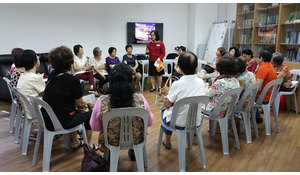
What started off with one ice kacang shared amongst five women, now includes support groups led by facilitators and activities such as mooncake-making and excursions. Photo courtesy of Wicare.
“Just put a widow next to another and there is healing. We understand one another; we have similar backgrounds,” Lye told Salt&Light.
In the early years, Wicare was run on a shoestring budget. Widow support mostly came in the form of informal companionship and whatever practical help that could be offered by Lye and other volunteers.
There was little financial contributions from the churches that they approached, Lye said.
But New Creation Church was a faithful supporter for over 11 years, which enabled them to get by with a skeleton staff.
“We had to go slow – there were not enough people. Everything had to be done by the Board members.”
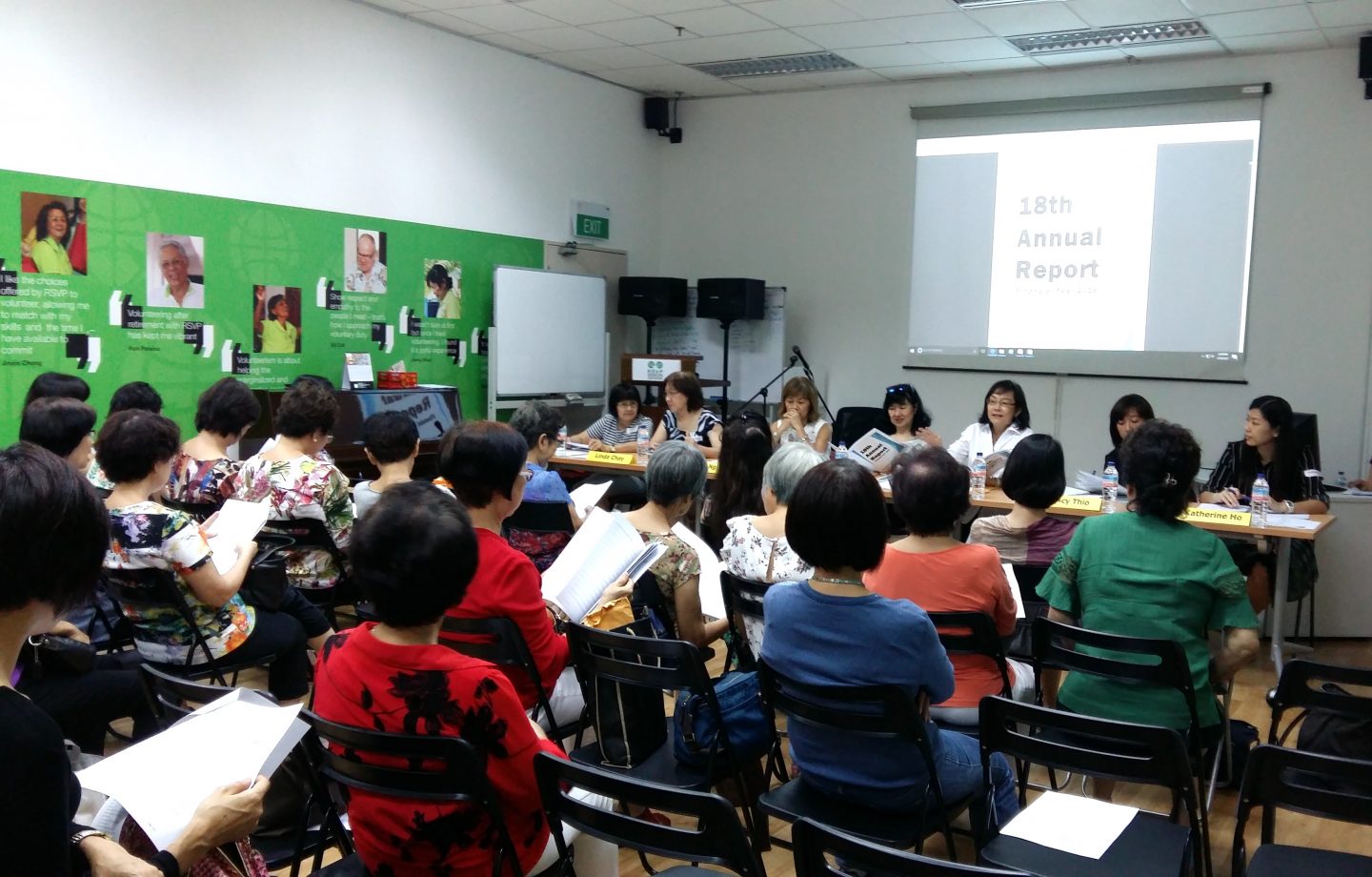
Wicare now runs on a three-year grant by NCSS, which has engaged the charity to address the needs of vulnerable widows in Singapore. While the programmes are run without religious content, the Wicare Board of Directors are Christians who firmly believe that this is the work that God has called them to. Photo courtesy of Wicare.
That changed in 2017 when NCSS (National Council of Social Services) approached Wicare with a three-year annual grant to expand the charity’s work amongst widows in Singapore.
“We are very, very blessed. God enlarged our tent.”
Through a small survey in 2016, NCSS had identified widows as an underserved group in Singapore – those aged 50 and above being especially vulnerable.
According to SingStats, in 2017, there were over 180,000 widows and widowers in Singapore. More than 148,000 of them are women.
Every year, about 80 widows seek help from Wicare which is mainly run by volunteers and a lean staff of six. Wicare has over 900 widows in their membership base.
“Someone spotted us when they (NCSS) went through their lists,” said Lye. “So they gave us the job and the grant.
“We are very, very blessed. God enlarged our tent.”
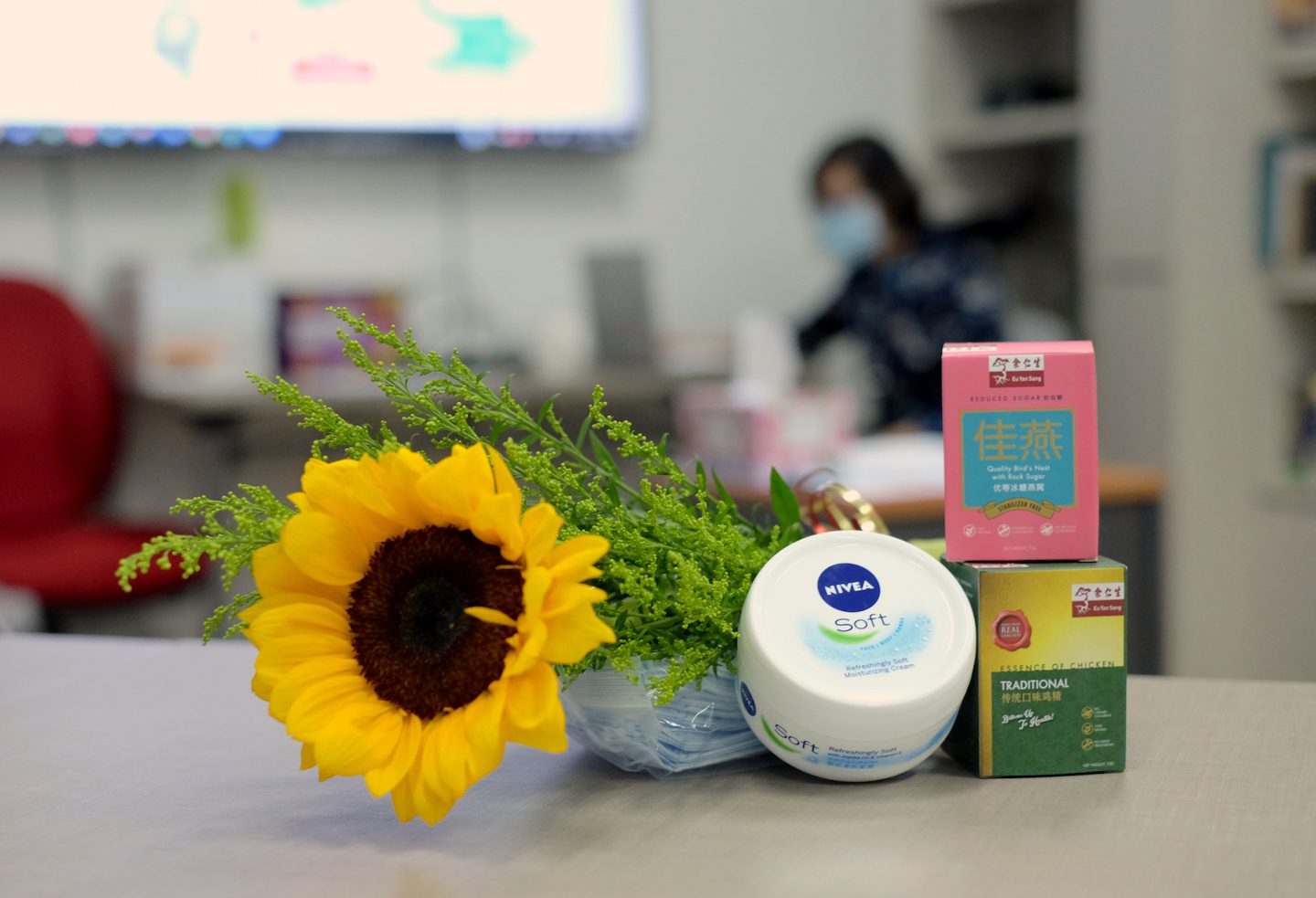
Occasionally, Wicare receives offers from corporate sponsors through their networks to provide gifts and care packs for widows. This was a recent self-care pack thoughtfully put together by an FMCG company in Singapore.
Wicare 2.0
That same year in 2017, Wicare underwent a change in leadership.
It was the answer that Lye had been praying for since 2012. “Unless I step down, I won’t see the talent shine – they can come up with new ideas,” she said, certain that a leadership change was necessary.
Lim Poh Hong, who was then the vice-chair and Lye’s weekly prayer partner for over 15 years, offered to step up.
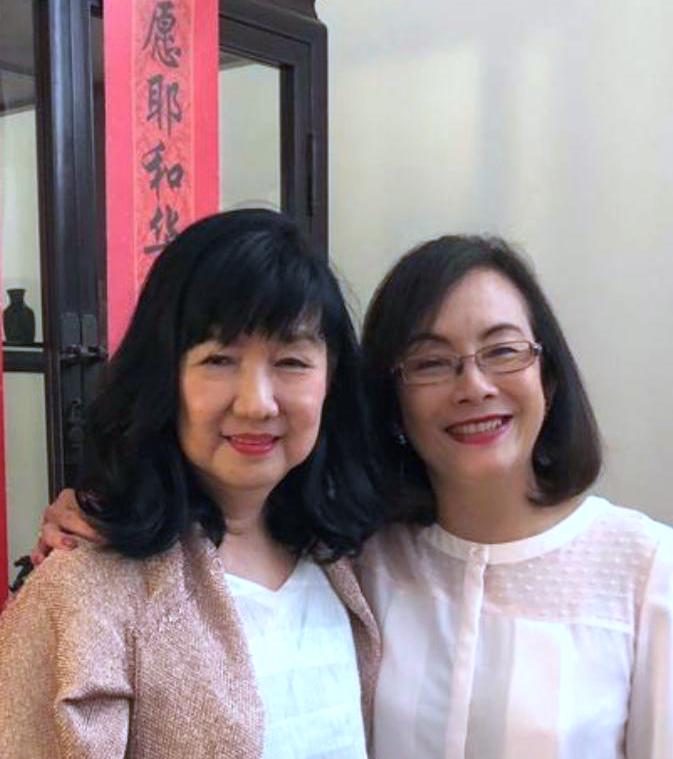
Lim Poh Hong (right) with Joyce Lye (left) have been prayer partners since 2005 when Poh Hong returned from Australia. They led Wicare as Chair and Vice-Chair for several years until Joyce stepped down in 2017. Poh Hong has taken over and is now the Chairperson of Wicare Support Group. Joyce remains active in the charity. Photo by Lim Poh Hong.
Lim, who has been on the Board since 2005, said she experienced an “overwhelming compassion” for Lye as they were talking after one of their regular prayer meetings
She is also a widow. In 1999, she lost her husband to lung cancer after a three-year battle.
“I didn’t know who to turn to,” she said, recalling the early days of her grief. Her pastor counselled her, and eventually directed her to Wicare – they only had an answering machine then, she added.
“In a way, grief is love and it never really goes away. We move forward; we don’t ‘move on’.”
Lim joined them and described the fortnightly prayer meetings that she attended as an “oasis” which she looked forward to. “I was enthralled by the fact that they were all widows and yet they could still smile! So different from how I was feeling,” Lim said.
But that gave her hope.
Today, as chairperson of Wicare and a background in corporate HR specialising in transition management, 68-year-old Lim is now focusing her energy on ramping up programmes, upgrading the capabilities of the Board and staff while also roping in younger individuals as volunteers and staff.
Hiring Soh was part of the team’s expansion and growth.
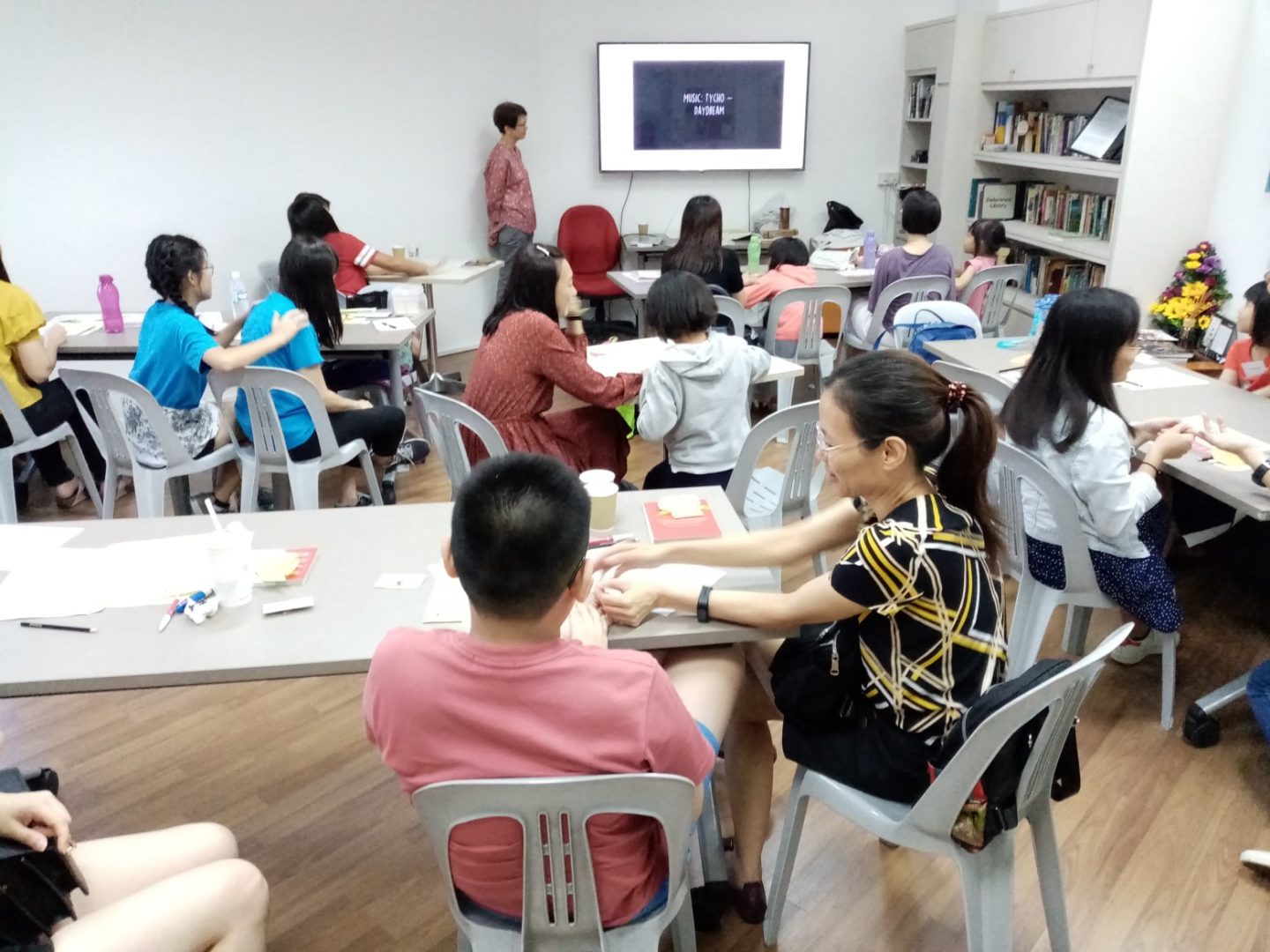
Wicare has now expanded its programmes – such as art therapy and encounter workshops – to include children of widows. Photo courtesy of Wicare.
When the General Manager retired in 2019, Soh took up that role in addition to her work as a grief counsellor.
Lim hopes to educate, equip and support other organisations with the know-how needed to run their own setups, but in Wicare, they are exploring ways to include children in their programmes.
“Women can pour out our hearts better. Not easy for teens – boys even harder,” Lim said knowingly; her son was only 13 when his father passed.
Grief is love
“In a way, grief is love and it never really goes away. We move forward; we don’t ‘move on’,” commented Soh, who wrote the enhanced WiShine Grief Support Group curriculum.
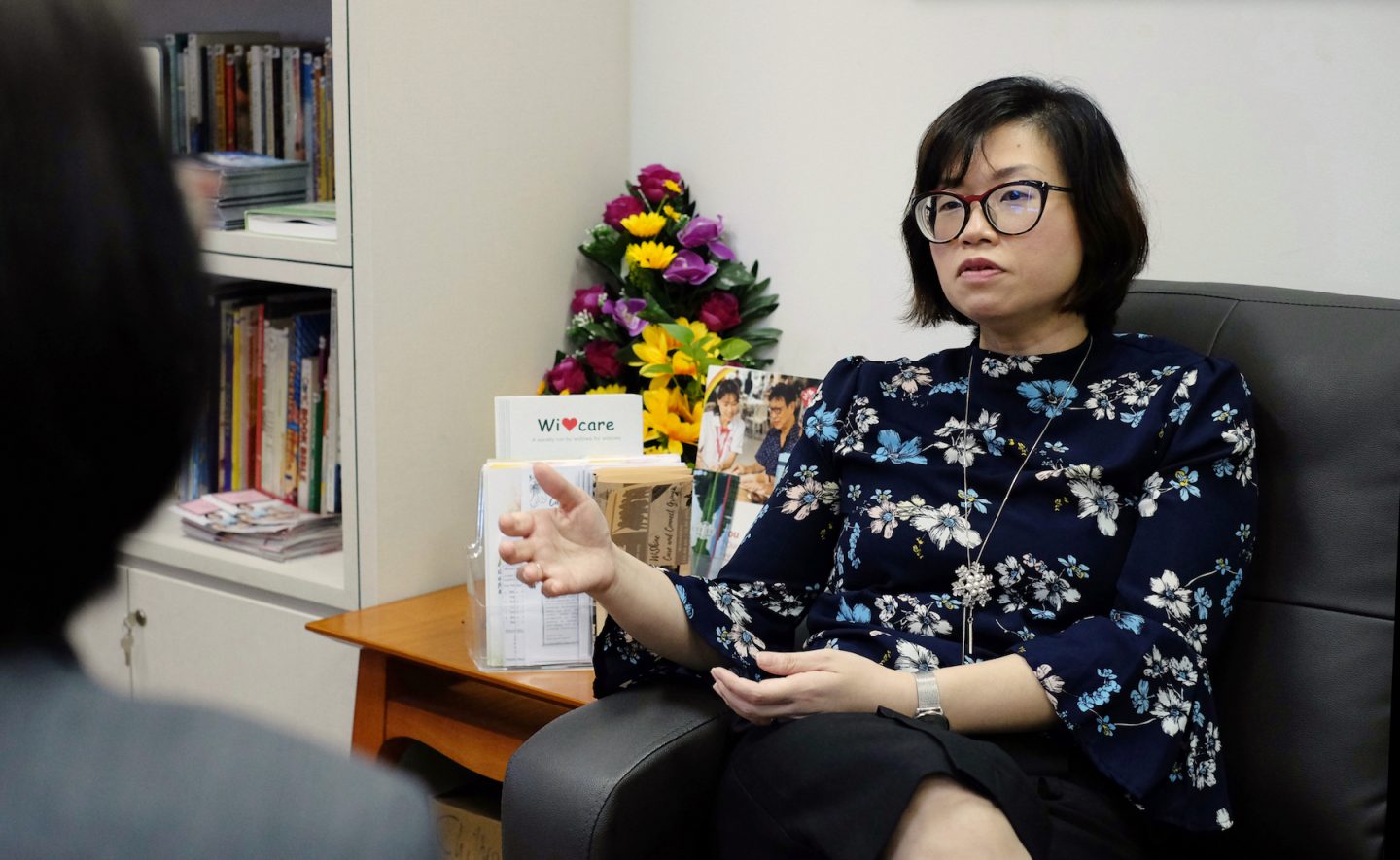
“Knowing that the Lord remembered me, the child of a widow, and called me to do the work of serving widows and the fatherless – that is enough bread for the journey,” says Lena Soh, general manager and grief counsellor at Wicare Support Group. Photo by Tan Huey Ying.
“There are things a person can do to cope so that life becomes more liveable and manageable after a loss. But the landscape of talking about grief, loss and healing is still quite nascent in Singapore,” she said, noting that death is still a taboo topic in some families.
“From the Bible, we know God’s heart for the widows (Psalm 68:5). Wicare is His work.”
But conversations – especially in support group settings – help to “normalise grief” which mitigates the loneliness and eventually helps the bereaved gain confidence to live.
Soh added: “With death and loss, the question is always, how can we live a more considered life?
“The Bible, in particular the Psalms, is full of narratives on grief and anguish. But they also hold valuable lessons on life and how to live meaningfully, reprioritise and focus on what truly matters.”
The curriculum she developed is not overtly based on biblical principles, as the NCSS-collaboration requires it to be free from religious orientation.
However, personally, Soh says that Bible verses such as Psalm 34:18, Revelation 21:4 and James 1:27 anchor and render meaning to her work at Wicare.
“Knowing that the Lord remembered me, and called me to serve widows and the fatherless – that is enough bread for the journey.”
Lim affirmed this at the organisational level. Noting the Christian statement of faith in Wicare’s constitution, she said: “From the Bible, we know God’s heart for the widows (Psalm 68:5). Wicare is His work.
“Even though we serve without discrimination, we know we are called here by God, whether as Board, staff or volunteer.”
For Soh, who studied literature in university, the symbolism of her call is not lost on her.
Even the most difficult cases she has handled have brought much fulfilment, she said. “What is man that You are mindful of him, and the son of man that You visit him?” (Psalm 8:4)
“Knowing that the Lord remembered me, the child of a widow, and called me to do the work of serving widows and the fatherless – that is enough bread for the journey.”
About grief:
There are many misconceptions about dealing with loss, explains Soh.
Most importantly, however, people need to know that grief is a normal reaction to loss and it is not a pathological condition nor something to be fixed.
Here’s what she says:
“Most people emerge stronger from loss with greater confidence in their ability to work through life’s sorrows and difficulties. What they need to do is to give it time, not run away from it but process their loss and make adjustments. Over time, life becomes more manageable and liveable.”
“In the book, Where Is God When It Hurts, award-winning author Philip Yancey answers his question with another: Where is the Church when it hurts?
“We can allow God to work through us to reach out, and offer practical help (1 Timothy 5:16).
“As a Christian community, we can make Christ visible and be instruments of grace, comfort and strength to those who are hurting and grieving.
“But be mindful that not all would have the same beliefs and there should be no imposition.”
Practical ways you can create a safe space for the bereaved:
Soh gives these suggestions:
- Allow the tears to flow: In the Bible, after Lazarus died, Jesus wept. There is much comfort for the bereaved to know that they can cry, for in the tears is the healing. The Bible tells us to mourn with those who mourn (Psalm 34:18) and to display genuine concern for people’s welfare (Philippians 2:19-20; 2 Corinthians 1:3-4).
- Listen: James 1:9 exhorts us to be “quick to hear, slow to speak”. Don’t hijack their stories by offering your own too often, even if you have good intentions. Understand that different people grieve differently. Ask questions sensibly and encourage sharing of their experiences and feelings. Do not set a time frame for their healing, trust that God has His timing for them (Ecclesiastes 3:1).
- Be present: You don’t have to be trained to do this. Sometimes empathy and a compassionate presence is all we need when words fail. Even if you feel inadequate, being present and listening engenders hope because people know they matter; that they are not alone. We are the peacemakers in God’s house who can bring the peace of God in the storms.
- Pray: We can ask God for the wisdom and words that can sustain the weary and comfort them (Isaiah 50:4).
- Empower them: Support them to draw upon inner resources or seek help when it becomes too overwhelming to cope. Allow them to make decisions and feel they have a choice – that they can say ‘no’.
“I am moved by the tears of your wife. I will heal you,” Jesus told this dying man
We are an independent, non-profit organisation that relies on the generosity of our readers, such as yourself, to continue serving the kingdom. Every dollar donated goes directly back into our editorial coverage.
Would you consider partnering with us in our kingdom work by supporting us financially, either as a one-off donation, or a recurring pledge?
Support Salt&Light
